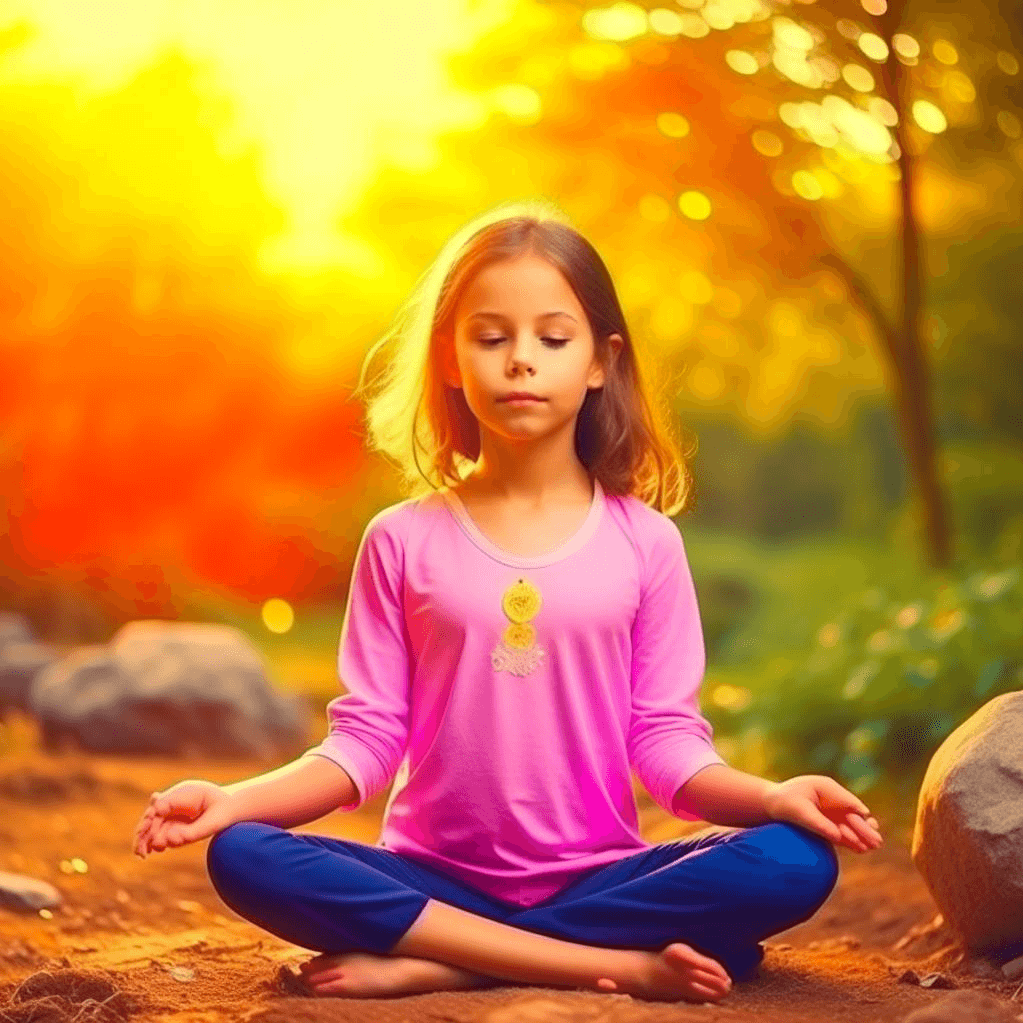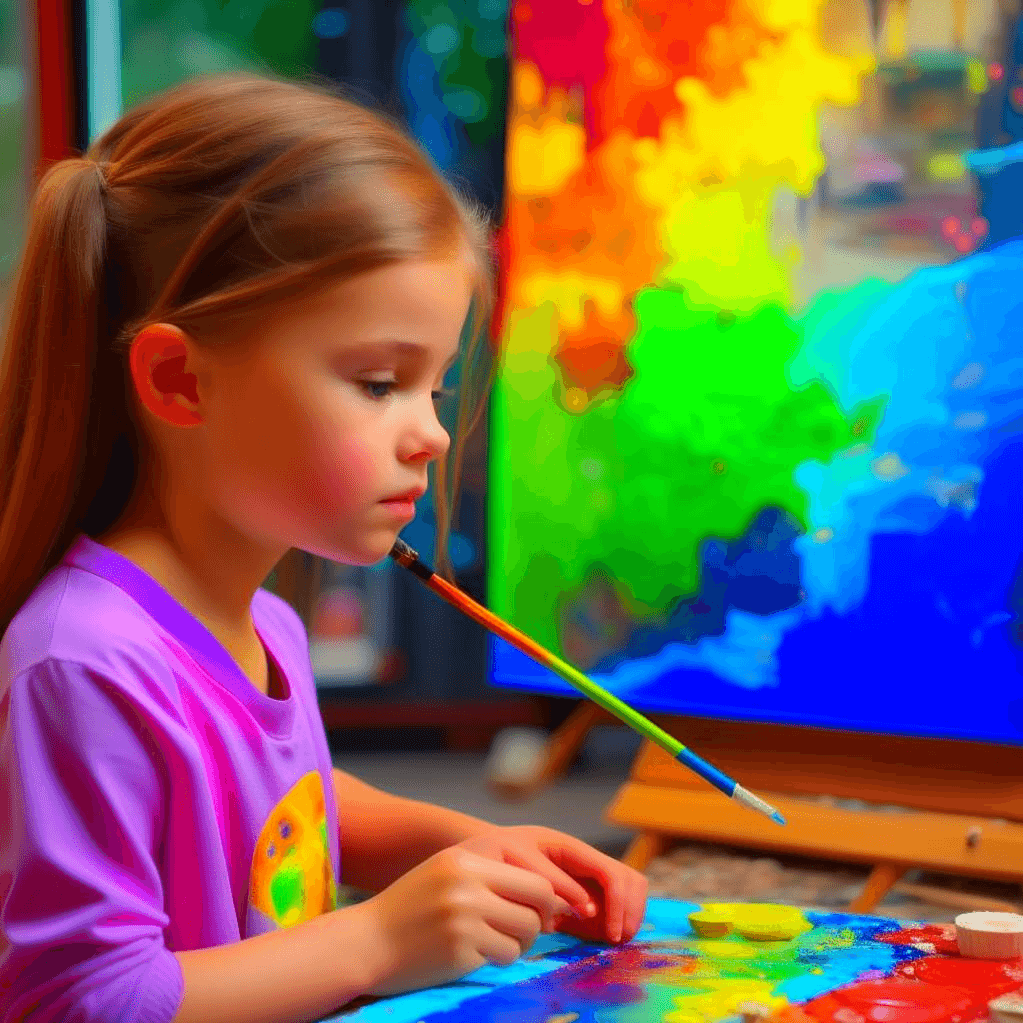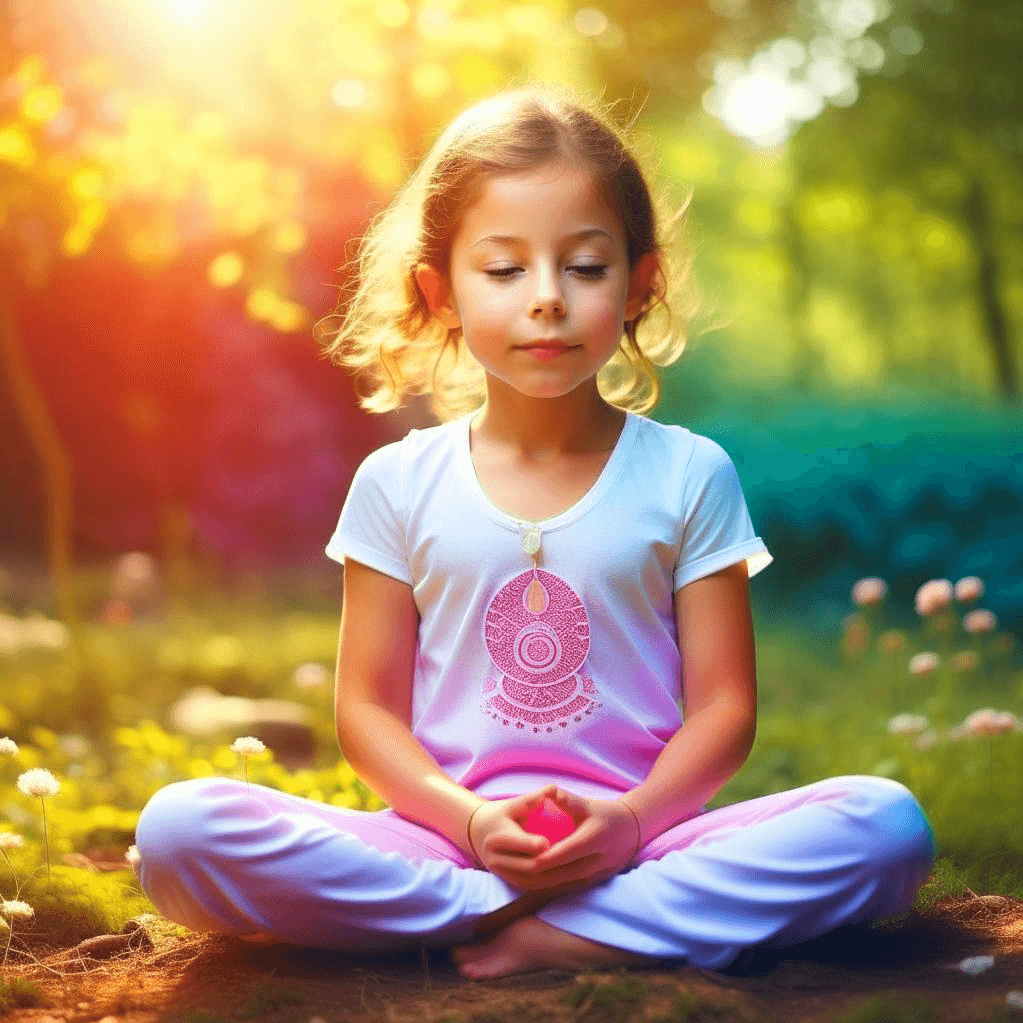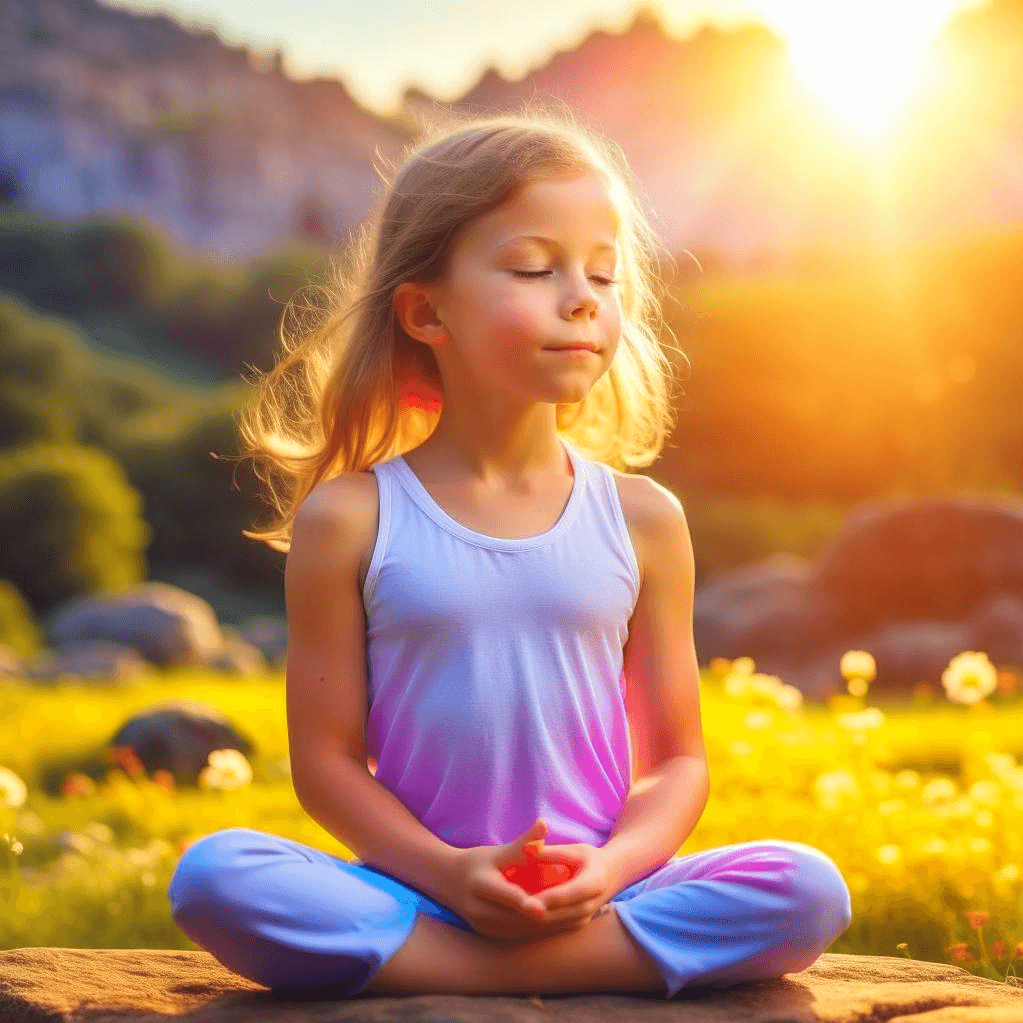Children’s wellbeing and happiness are of utmost importance for their overall development and growth. As parents and caregivers, we are always on the lookout for ways to enhance their emotional and mental health. One increasingly popular method that has gained attention is meditation for kids. Meditation, a practice that helps calm the mind and find inner peace, is not just for adults anymore. It has been found to have numerous benefits for children, promoting emotional wellbeing, enhancing mental health, and cultivating happiness. In this article, we will explore the wonders of meditation for kids and provide practical tips for incorporating it into their daily routines.
Contents
I. Understanding Meditation for Kids
II. Boosting Emotional Wellbeing
III. Enhancing Mental Health
IV. Cultivating Happiness and Positive Mindset
V. Incorporating Meditation into Kids’ Daily Routine
VI. Addressing Potential Challenges and Concerns
VII. Conclusion
I. Understanding Meditation for Kids

Meditation is a special practice that can help kids feel calm and happy. It’s like taking a little break for your mind and body. When you meditate, you sit quietly and focus on your breath or a special word or phrase. It helps you relax and let go of any worries or stress.
There are different types of meditation that are perfect for kids. One type is called “mindfulness,” where you pay attention to the present moment and notice how your body feels. Another type is “loving-kindness” meditation, where you think kind thoughts about yourself and others.
Meditation has lots of benefits for kids. It helps them handle stress and worry better, so they can feel more peaceful and confident. It also helps them understand and control their emotions, so they can be happier and make better choices.
Here’s an example of a meditation exercise for kids: Close your eyes and take a deep breath in, then slowly let it out. Imagine you’re blowing away all your worries and troubles. Keep breathing deeply and imagine a warm, bright light filling your body with happiness and calmness.
Remember, meditation is like a superpower that can make you feel amazing. So give it a try and see how it can make a difference in your life!
II. Boosting Emotional Wellbeing

Did you know that meditation can help kids manage their stress and anxiety? It’s true! When children practice meditation, they learn how to calm their minds and relax their bodies. This can make them feel more peaceful and less worried about things that bother them.
Meditation also helps kids regulate their emotions better. It’s like having a superpower to control how they feel! When children meditate, they become more aware of their emotions and can choose how to respond to them. So, if they’re feeling angry or sad, they can use meditation to find inner peace and happiness.
There are different meditation techniques that can boost emotional wellbeing in kids. One technique is called “belly breathing.” It’s like filling up a balloon in your tummy with air and then slowly letting it out. When children practice belly breathing, they feel more relaxed and less stressed.
Another technique is called “loving-kindness meditation.” This is when kids send positive thoughts and wishes to themselves and others. It helps them develop kindness and compassion towards themselves and those around them. By practicing loving-kindness meditation, children can feel happier and more connected to others.
Scientific studies have shown that meditation can really make a difference in kids’ emotional health. It’s like giving their minds a special workout! When children meditate regularly, they become better at managing their emotions and staying calm in challenging situations. This can lead to improved relationships with friends, family, and even themselves.
So, if you want to help your child boost their emotional wellbeing, why not give meditation a try? It’s a fun and easy way for kids to relax, feel happier, and be more in control of their emotions. Just a few minutes of meditation each day can make a big difference in their overall happiness and wellbeing.
III. Enhancing Mental Health

Meditation is like a superhero for your brain! It has incredible powers that can boost your mental health and make your mind stronger. When you meditate, you become better at focusing and paying attention. It’s like giving your brain a workout, making it stronger and more powerful.
Did you know that meditation can even improve your memory? It’s true! When you practice meditation regularly, your brain becomes better at remembering things. You’ll be able to remember facts for school or even remember where you left your favorite toy.
Meditation can also help you become smarter. It makes your brain more flexible and creative, so you can come up with new ideas and solve problems easily. It’s like a secret weapon for your brainpower!
But that’s not all. Meditation can also help you feel happier and more positive. It’s like a magic potion that boosts your mood and makes you feel good inside. When you meditate, you learn to focus on the present moment and let go of worries and negative thoughts. This helps you feel more calm and peaceful.
And guess what? Meditation can even make you more popular! When you’re happy and calm, people are naturally drawn to you. You’ll make friends easily and have better relationships with others.
So, if you want to be a superhero with a strong and happy brain, give meditation a try! It’s like a superpower that can enhance your mental health and make you feel amazing. Just a few minutes of meditation each day can make a big difference. Start today and watch your brain soar to new heights!
IV. Cultivating Happiness and Positive Mindset

Did you know that meditation can help kids become happier and have a positive outlook on life? It’s true! Let’s explore how meditation can cultivate happiness and a positive mindset in children.
Fostering a Positive Mindset:
When children meditate, it helps them develop a positive mindset. It’s like planting seeds of happiness in their minds. Meditation teaches kids to focus on the present moment, which allows them to let go of negative thoughts and worries. Instead, they learn to appreciate the good things in their lives and see the world with a brighter perspective.
Developing Gratitude and Compassion:
Meditation also helps children develop gratitude and compassion. By taking time to reflect and be mindful, kids learn to appreciate the little things in life and be thankful for what they have. This gratitude helps them feel happier and more content. Additionally, meditation encourages kids to think about others and show kindness and empathy, which boosts their sense of compassion and overall happiness.
Building Resilience and Optimism:
Through meditation, children learn to build resilience and optimism. They develop the ability to bounce back from challenges and setbacks. Meditation teaches kids that they have the power to overcome difficulties and find solutions. This positive mindset helps them face life’s ups and downs with confidence and optimism, leading to greater happiness and overall well-being.
Boosting Self-Confidence:
Meditation also boosts children’s self-confidence. By practicing mindfulness and self-awareness, kids become more in tune with their thoughts and emotions. They learn to accept themselves as they are and develop a sense of self-worth. This increased self-confidence helps children believe in themselves, take on new challenges, and pursue their dreams, leading to a happier and more fulfilling life.
Encouraging Positive Relationships:
Meditation can also improve children’s relationships with others. When kids are more mindful and present, they listen better and understand others’ perspectives. This leads to stronger connections with family, friends, and classmates. Positive relationships contribute to children’s happiness and overall well-being.
Meditation is a powerful tool for cultivating happiness and a positive mindset in children. By practicing meditation, kids can develop gratitude, compassion, resilience, and self-confidence. They learn to appreciate the present moment and build positive relationships. So, let’s encourage kids to meditate and watch them grow into happier and more positive individuals.
V. Incorporating Meditation into Kids’ Daily Routine

When it comes to helping kids feel happier and more relaxed, meditation is a great tool to have in their daily routine. Here are some simple tips to help parents and caregivers introduce meditation to children:
1. Start with short sessions: Begin with just a few minutes of meditation each day and gradually increase the duration as your child becomes more comfortable. This will help them ease into the practice without feeling overwhelmed.
2. Create a peaceful environment: Find a quiet and calm space where your child can meditate. It could be their bedroom, a cozy corner, or even outside in nature. Make sure the surroundings are free from distractions and create a soothing atmosphere with soft lighting or calming music.
3. Make it fun and engaging: To keep kids interested, make meditation a fun and interactive experience. You can use guided meditation apps or videos specifically designed for children. Incorporate visualizations, storytelling, or even gentle movements to make it more engaging and enjoyable.
4. Be consistent: Consistency is key when it comes to establishing a meditation practice. Encourage your child to meditate at the same time each day, whether it’s before bedtime, after school, or in the morning. This will help them develop a routine and make meditation a natural part of their day.
5. Encourage self-expression: Allow your child to express themselves during meditation. They can use art materials like crayons or colored pencils to draw or write about their experiences. This can help them process their thoughts and emotions, making the practice even more beneficial.
Remember, meditation is a personal journey, and every child is different. It’s important to be patient and supportive as your child explores this new practice. With time and consistency, meditation can become a valuable tool for their overall wellbeing and happiness.
VI. Addressing Potential Challenges and Concerns

Meditation for kids is becoming increasingly popular, but some people may have concerns or doubts about its effectiveness or safety. Let’s address these potential challenges and provide some reassuring information.
Misconception: Meditation is only for adults.
Fact: While meditation has long been practiced by adults, it is also beneficial for children. Kids can learn simple techniques that are age-appropriate and tailored to their needs.
Concern: Meditation may be boring or difficult for children.
Fact: Meditation can be made fun and engaging for kids. There are various guided meditation apps, videos, and books specifically designed to capture their attention and make the practice enjoyable.
Misconception: Meditation is a religious practice.
Fact: While meditation has roots in various spiritual traditions, it can be practiced in a secular and non-religious way. It focuses on calming the mind, promoting relaxation, and cultivating positive qualities like kindness and gratitude.
Concern: Children may not be able to sit still or concentrate during meditation.
Fact: It’s normal for kids to have shorter attention spans. However, meditation can help improve their ability to focus over time. Starting with shorter sessions and using interactive techniques can make it easier for them to stay engaged.
Misconception: Meditation may have negative effects on children’s mental health.
Fact: Numerous studies have shown that meditation has positive effects on children’s mental health, including reduced stress, anxiety, and improved emotional regulation. It is generally considered safe and beneficial when practiced appropriately.
Concern: Children may resist or reject meditation.
Fact: Some children may initially resist meditation, but with patience and persistence, they can gradually become more open to it. Introducing meditation as a regular part of their routine and leading by example can help overcome resistance.
Misconception: Meditation is time-consuming and impractical for busy families.
Fact: Even a few minutes of meditation each day can have significant benefits. It can be incorporated into daily activities like bedtime or morning routines, making it more manageable for busy families.
Addressing potential challenges and concerns about meditation for kids is important. By dispelling misconceptions and providing reassurance, we can encourage parents and caregivers to explore the benefits of meditation and help children thrive in their overall wellbeing and happiness.
VII. Conclusion
In conclusion, meditation is a wonderful way to boost your child’s wellbeing and happiness. It helps them manage stress and anxiety, improves their concentration and focus, and cultivates a positive mindset. Studies have shown that meditation can have a positive impact on children’s mental and emotional health. By incorporating meditation into their daily routine, parents and caregivers can provide their children with valuable tools for life. Creating a peaceful environment and being consistent with meditation practice is important. There are many age-appropriate meditation exercises and resources available to help get started. Don’t worry if there are skeptics or concerns, as meditation has been proven to be safe and effective for kids. So why not give it a try and watch your child thrive and flourish with the power of meditation?











